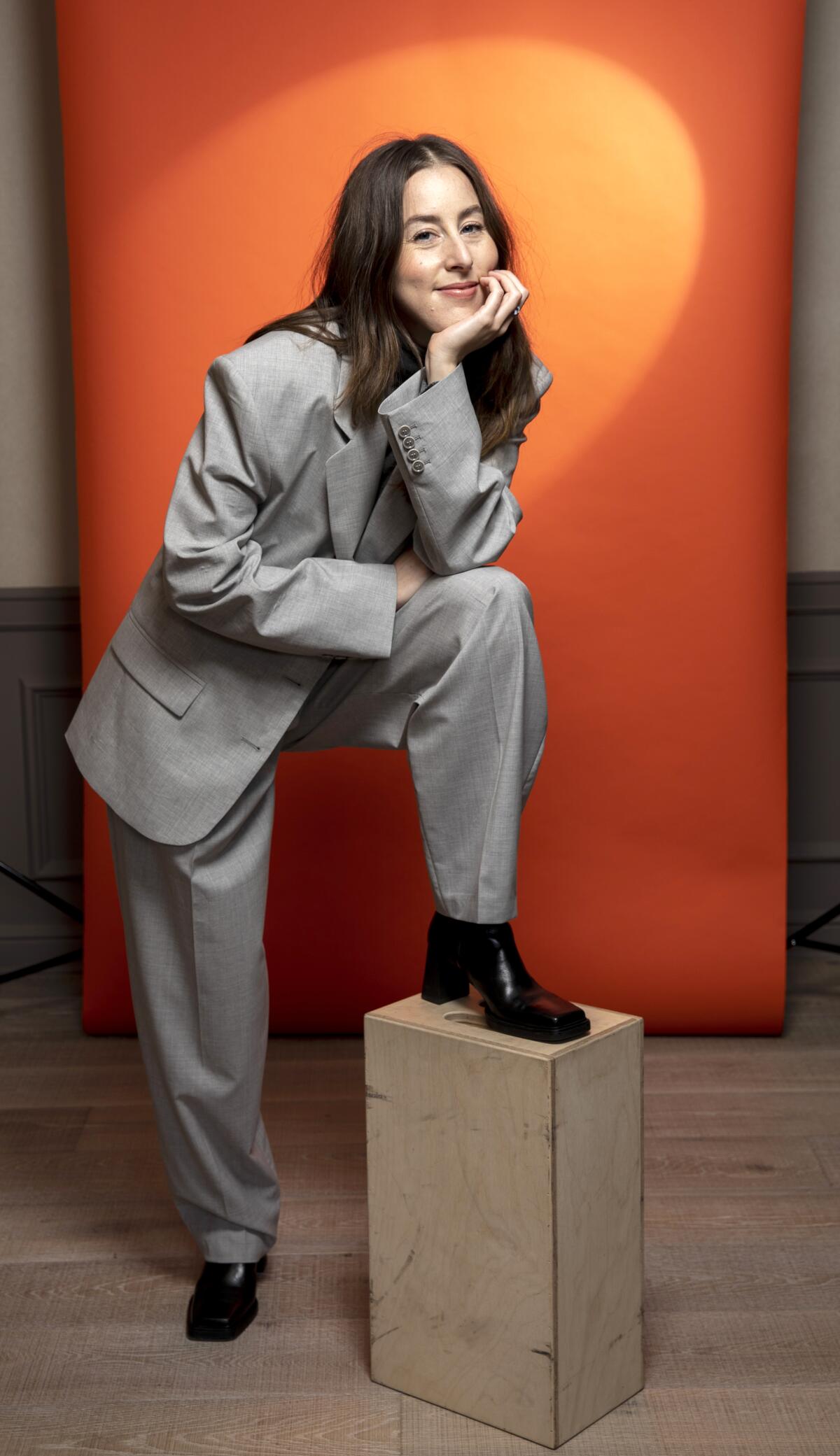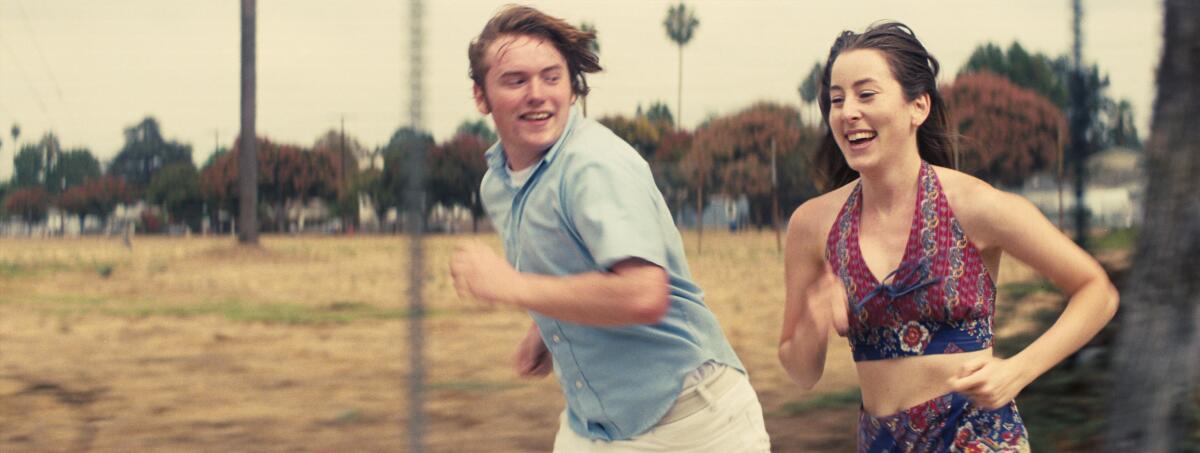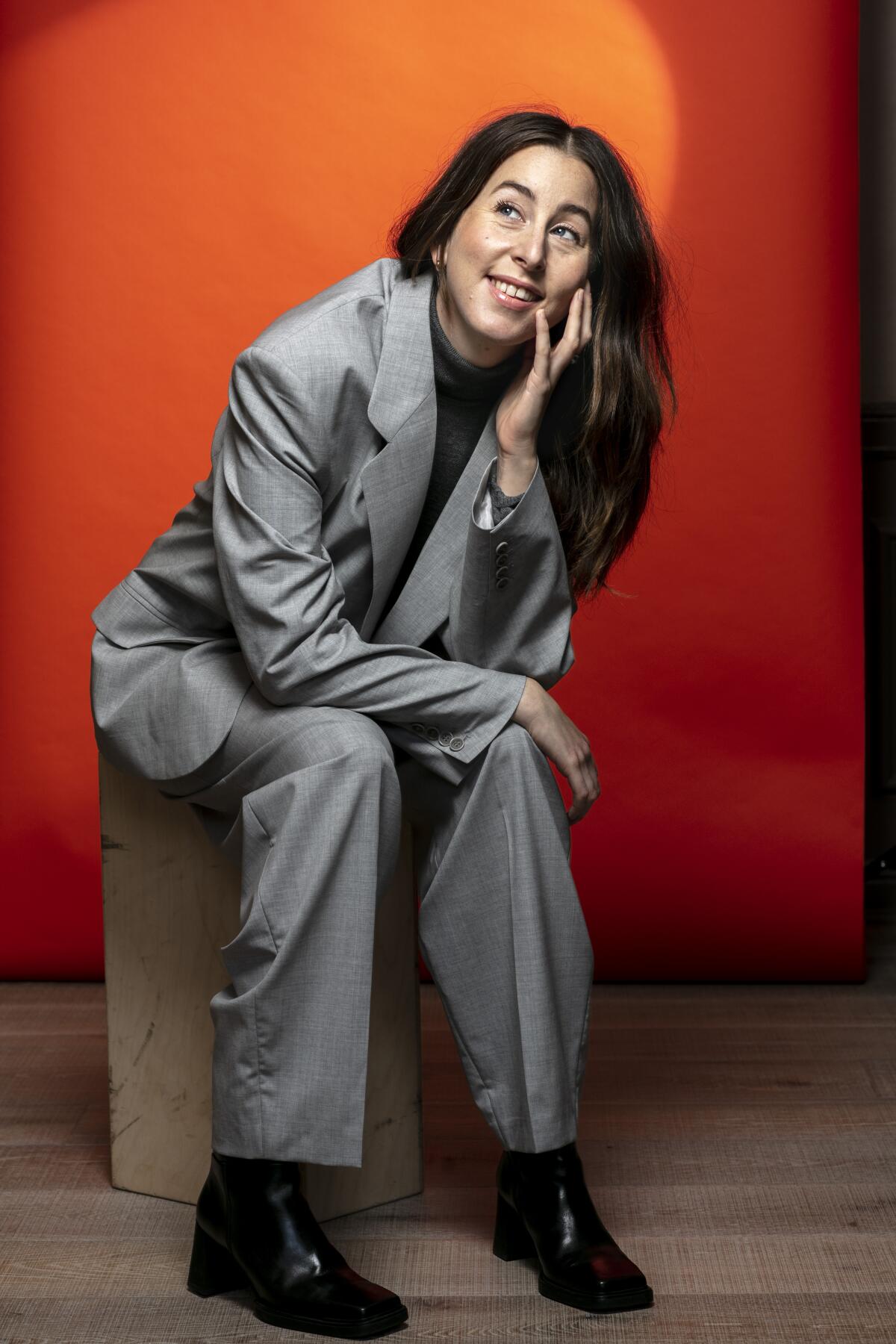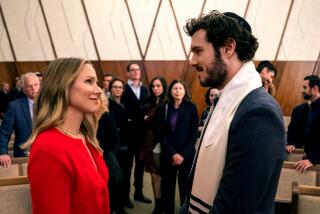How Alana Haim shocked Paul Thomas Anderson with her ‘Licorice Pizza’ improv

Soon after her close friend Paul Thomas Anderson’s “Licorice Pizza” script appeared in her email in-box and she’d signed on to star in the charming comic romance, it dawned on Alana Haim that there was a reason the filmmaker often shared anecdotes with her about San Fernando Valley in the early ‘70s.
“I feel like Paul was dropping all these breadcrumbs, all these stories about waterbeds and pinball machines, but I never caught [on],” says Haim, who grew up in Valley Village and is the youngest of the three multi-instrumentalist sisters who make up the Grammy-nominated band Haim. “I just loved hearing about the Valley, because he has the same amount of love for it that I do.”
Before “Licorice Pizza,” the closest thing to hitting her mark involved lip-syncing and twirling her way through Anderson’s low-budget music videos for her band. “Doing music videos, it’s such small scale — it was like going from P.E. class to the Olympics” says Haim. Then the rapturous reviews for her performance as Alana Kane, a sometimes feisty, somewhat unmoored 20-something, began pouring in. Now she’s ready to take Hollywood by storm. “I’d love to work with Paul again,” she says, her expressive face lighting up. “Maybe you need to call him up and tell him to hire me.”
You’ve never acted in a movie yet get offered the leading role. After elation, what’s the next emotion?
Fear. In this business you hear “No” all the time. It makes you build up this big fear monster in your mind. You start hearing little things that are terrible. Like, “You can’t do this. You’ve never acted before. You’re going to fail.” But Paul makes you feel like you can do anything. When we were doing music videos, there were times where I was like, “I don’t know if we can pull this off.” And he’s like, “You can.” To have someone like Paul tell you, “You’ve got this,” it’s such a rare thing to have in this business.

Talk about your first meeting with co-star Cooper Hoffman in 2017, when Paul asked you and your sisters to baby-sit him.
Cooper is very intimidating; he has all this confidence. Growing up in L.A., you always envy kids who grew up in New York, taking the subway and walking around the streets. They seem so much older. My childhood was asking my parents if they would drive me to the Galleria. There’s no toughness. [Pause] He’ll kill me for saying that I baby-sat him. He’s going to be like, [deep voice] “You didn’t babysit me. I didn’t need your help.” [Laughs]
Let me re-phrase. Paul asked you to get him something to eat.
We took him to the original Katsu-Ya in Studio City. I have this vivid memory: He took out his Invisalign and did this slurp like you do when you have a retainer, set it on the table and [said], “Ladies, what are we having? Salmon? Sashimi?” And we were all looking at each other like, “Who is this kid?”
How does performing before a huge crowd prepare you for being on a bustling film set?
Onstage, it’s sink or swim. So many things can happen. We’ve had everything go wrong in a show. And you have to pretend like nothing’s going on. Like, “Oh, that crazy light that fell and burst into a million pieces? That happens every show!” In a movie, so many things are being thrown at you at a moment’s notice. [You have to] be prepared for everything, and I brought that from music.
Some of your most memorable scenes also star your real-life family. How did you collectively establish that fantastically quirky comic rhythm?
[Because of COVID protocols] I didn’t see anybody for 65 days unless it was someone in our bubble. My parents were constantly like, “Can we just see you for five minutes?” And I’m like, “Absolutely not.” Then it was our time to shoot. We all sat down in a house that wasn’t our own. But it didn’t matter. It really felt like there weren’t cameras around. Both my parents were very professional, never broke, were the hardest working actors on “Licorice Pizza.” The problem was me, Este and Danielle. We couldn’t stop laughing.
The now-famous Shabbat scene. Originally, it ended with your character in tears. How did it morph into a more confrontational response?
I put myself in Alana Kane’s shoes. If she had to go through Shabbat dinner where her boyfriend [played by Skyler Gisondo] said he was an atheist to her dad, she wouldn’t be crying. She’d be angry that he embarrassed her in front of her sisters [who] are going to give her crap for the next year.
I remember Paul being like, “You’ve got to do this,” then finally, “I get it. You physically can’t do this.” I looked at him and said, “I want to try something.” Every time I said, “I want to try something,” he’d get really excited, because he knew I was going to do something. Something that was most likely insane. I didn’t tell anyone what I was going to do. I walked out of Alana’s house, and the first thing I said [to Gisondo] was, “What does your penis look like?” [Laughs] And everyone was just shocked.

The film has a breathtaking action sequence where you free-drive an enormous manual U-Haul moving van. How many takes did you get?
It was days.
Sometimes you look very tense.
Oh, yeah. That’s not acting. That’s just me. Before we started shooting, I had a couple of months of truck school. I affectionately named [the truck] Gertie. She was a tough lady to become friends with. But it goes back to Paul being, like, “You can do this.” And I was like, [amazed voice] “I can do this!” So we got in that truck, and I put it in first, then went into second. And I was like, “Oh, I got this.” You know, just a casual day of driving Bradley Cooper and Cooper Hoffman through the tiniest streets of Tarzana. Once Gertie and I became friends, it was fun.
I love that truck.
I miss that truck.
I wish that truck was mine.
More to Read
From the Oscars to the Emmys.
Get the Envelope newsletter for exclusive awards season coverage, behind-the-scenes stories from the Envelope podcast and columnist Glenn Whipp’s must-read analysis.
You may occasionally receive promotional content from the Los Angeles Times.







